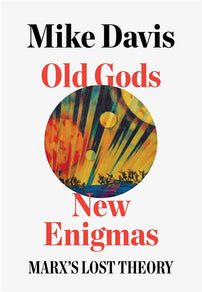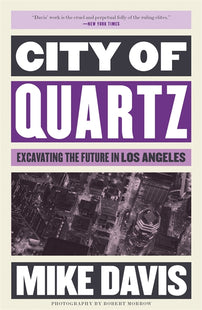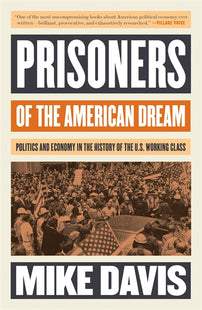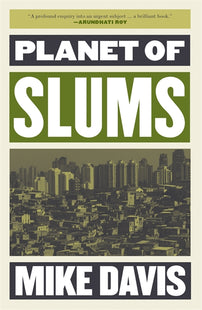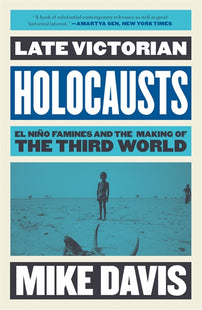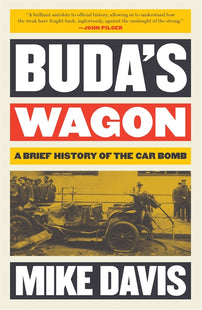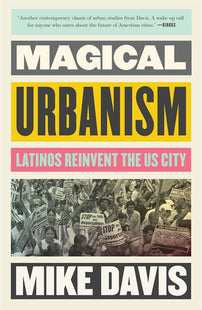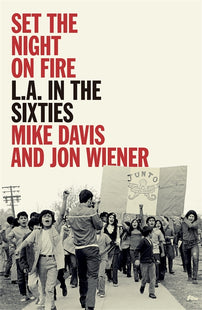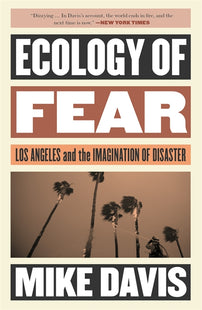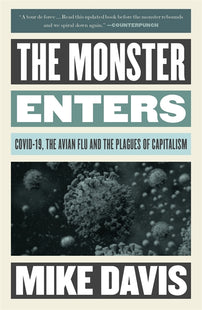Mike Davis: Prophetic Marxist Historian and Activist
Complete your Mike Davis book shelf!
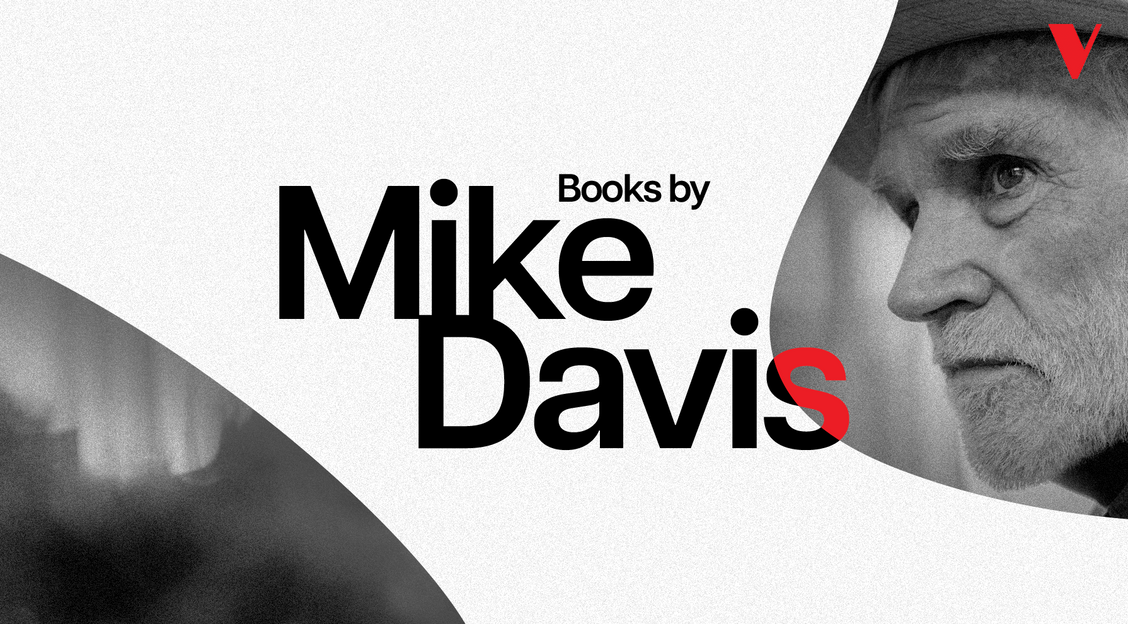
The legendary Marxist thinker and activist Mike Davis explored political power and social class for decades. As a long-time editor at New Left Review, and contributor to Los Angeles Review of Books, Socialist Review and others, his sharp analysis and glittering prose criss-crossed over urban studies, political economy, social theory, and US history to reveal the ravages of global capitalism on people and planet as well as areas for resistance.
[book-strip index="2" style="buy"]
In City of Quartz, Davis reconstructs L.A.’s shadow history and dissects its ethereal economy. He tells us who has the power and how they hold on to it. He gives us a city of Dickensian extremes, Pynchonesque conspiracies, and a desperation straight out of Nathaniel West – a city in which we may glimpse our own future mirrored with terrifying clarity.
Davis explores Marx’s inquiries into two key questions of our time: Who can lead a revolutionary transformation of society? And what is the cause—and solution—of the planetary environmental crisis? Davis presents a critique of the current fetishism of the “anthropocene,” which suppresses the links between the global employment crisis and capitalism’s failure to ensure human survival in a more extreme climate.
[book-strip index="8" style="buy"]
Mike Davis and Jon Wiener provide the first comprehensive movement history of L.A. in the sixties, drawing on extensive archival research and dozens of interviews with principal figures, as well as the authors’ storied personal histories as activists. Following on from Davis’s awardwinning L.A. history, City of Quartz, Set the Night on Fire is a historical tour de force, delivered in scintillating and fiercely beautiful prose.
Prisoners of the American Dream is Mike Davis’s brilliant exegesis of a persistent and major analytical problem for Marxist historians and political economists: Why has the world’s most industrially advanced nation never spawned a mass party of the working class? This series of essays surveys the history of the American bourgeois democratic revolution from its Jacksonian beginnings to the rise of the New Right and the re-election of Ronald Reagan, concluding with some bracing thoughts on the prospects for progressive politics in the United States.
[book-strip index="4" style="buy"]According to the United Nations, more than one billion people now live in the slums of the cities of the South. In this brilliant and ambitious book, Mike Davis explores the future of a radically unequal and explosively unstable urban world. From the sprawling barricadas of Lima to the garbage hills of Manila, urbanization has been disconnected from industrialization, and even from economic growth. Davis portrays a vast humanity warehoused in shantytowns and exiled from the formal world economy.
[book-strip index="5" style="buy"]Late Victorian Holocausts focuses on three zones of drought and subsequent famine: India, Northern China; and Northeastern Brazil. All were affected by the same global climatic factors that caused massive crop failures, and all experienced brutal famines that decimated local populations. But the effects of drought were magnified in each case because of singularly destructive policies promulgated by different ruling elites. Davis argues that the seeds of underdevelopment in what later became known as the Third World were sown in this era of High Imperialism, as the price for capitalist modernization was paid in the currency of millions of peasants’ lives.
[book-strip index="6" style="buy"]On a September day in 1920, an angry Italian anarchist named Mario Buda exploded a horse-drawn wagon filled with dynamite and iron scrap near New York’s Wall Street, killing 40 people. Since Buda’s prototype the car bomb has evolved into a “poor man’s air force,” a generic weapon of mass destruction that now craters cities from Bombay to Oklahoma City. In this provocative history, Mike Davis traces the its worldwide use and development, in the process exposing the role of state intelligence agencies—particularly those of the United States, Israel, India, and Pakistan—in globalizing urban terrorist techniques.
[book-strip index="7" style="buy"]Is the capital of Latin America a small island at the mouth of the Hudson River? Will California soon hold the balance of power in Mexican national politics? Will Latinos reinvigorate the US labor movement? These are some of the provocative questions that Mike Davis explores in this fascinating account of the Latinization of the US urban landscape. As he forefully shows, this is a demographic and cultural revolution with extraordinary implications.
[book-strip index="9" style="buy"]
Counterpointing LA’s central role in America’s fantasy life—the city has been destroyed no less than 138 times in novels and films since 1909—with its wanton denial of its own real history, Davis creates a revelatory kaleidoscope of American fact, imagery, and sensibility. Drawing upon a vast array of sources, Ecology of Fear meticulously captures the nation’s violent malaise and desperate social unease at the end of the "American century." With savagely entertaining wit and compassionate rage, this book conducts a devastating reconnaissance of our all-too-likely urban future.
[book-strip index="10" style="buy"]
In his book, The Monster at Our Door, the renowned activist and author Mike Davis warned of a coming global threat of viral catastrophes. Now in this expanded edition of that 2005 book, Davis explains how the problems he warned of remain, and he sets the Covid-19 pandemic in the context of previous disastrous outbreaks, notably the 1918 influenza disaster that killed at least forty million people in three months and the Avian flu of a decade and a half ago.
